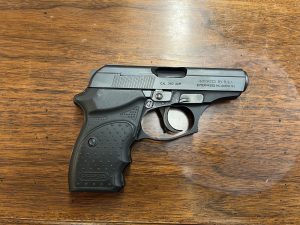Texas UCW: Getting a Seized Weapon Back
 After a Texas UCW arrest, police usually seize your gun. But, what happens to the weapon after the Texas UCW case ends? The answer is not very clear. Texas Code of Criminal Procedure 18.19 states the rules regarding what happens to seized weapons.
After a Texas UCW arrest, police usually seize your gun. But, what happens to the weapon after the Texas UCW case ends? The answer is not very clear. Texas Code of Criminal Procedure 18.19 states the rules regarding what happens to seized weapons.
Return of the Weapon if UCW Charge is Dropped
As mentioned in one of our other posts, Texas UCW is usually “tacked-on” to another charge (such as Texas DWI). That said, a typical (but not guaranteed) result is that the State drops or plea-in-bar’s the UCW as part of a plea agreement to the “primary” charge. When this situation occurs, the judge is supposed to inform you that you are entitled to return of the weapon upon written request, but we have very rarely seen this actually happen. So, the usual course of action is to file a written motion requesting the return of the weapon. Your criminal defense attorney must file this request within 61 days. If there is no request, then the judge shall order the weapon destroyed, sold, or forfeited to the State.
Getting a Seized Weapon Back upon UCW Conviction
Upon a UCW conviction, certain restrictions apply, but return of the weapon is still a possibility. Primarily, like above, you must make a written request. Also, if you have a prior UCW conviction you are NOT eligible to have the weapon returned. Perhaps the most broad restriction, you are NOT eligible if the judge, based on your criminal record and the circumstances of the offense, determines that returning the weapon would pose a threat to the community or specific individuals.
Getting a Seized Weapon Back upon Conviction for Offense Involving Use of the Weapon
Finally, the court shall require destruction, sale or forfeiture of the weapon upon a conviction for an offense involving use of the weapon. There are two primary scenarios: 1) the court returns the weapon and you use it to commit a crime, or 2) the underlying conviction involved use of the weapon. One example is an assault with a deadly weapon. Since the underlying offense required using the weapon, the court cannot allow return of the weapon.
However, returning weapons tends to be county specific. Some counties, like Dallas, rarely if ever, return weapons. Often, Dallas County will require you to forfeit the weapon as part of a plea. Alternatively, the court will simply order destruction of the weapon as a condition of the plea. Other Counties, such as Tarrant County, are more open to returning weapons upon written motion. But, that does not mean judges want to return the weapon. While judges consider the motions, they rarely grant them out of concern for use of the weapon in future offenses.
About Mimi Coffey & The Coffey Firm
When people look for a Top DWI Attorney or Best DWI Attorney, they look for experience, certification, and respect in the legal community. Mimi Coffey is a nationally-renowned trial attorney, board-certified in DWI by the NCDD. She has been practicing for over 24 years and is an author of multiple DWI Defense textbooks. She is also a national and state-wide lecturer on the law.
The Coffey Firm handles a wide variety of cases, including Unlawful Carrying Weapon (UCW), Assault (including family violence), and Possession charges. We can also help you try to get a DWI off your record or avoid probation revocation.
Mimi Coffey is also listed on several “top dwi lawyer near me” directory listings such as Wise County DWI Lawyers, Tarrant County DWI Lawyer, Dallas County DWI attorney, Collin County DWI attorneys and Parker County DWI attorneys. Mimi is a caring DWI Lawyer in Dallas – Fort Worth. She is also involved in the Texas Tech School of Law foundation and enjoys using the skills she has developed to give back to the community.

